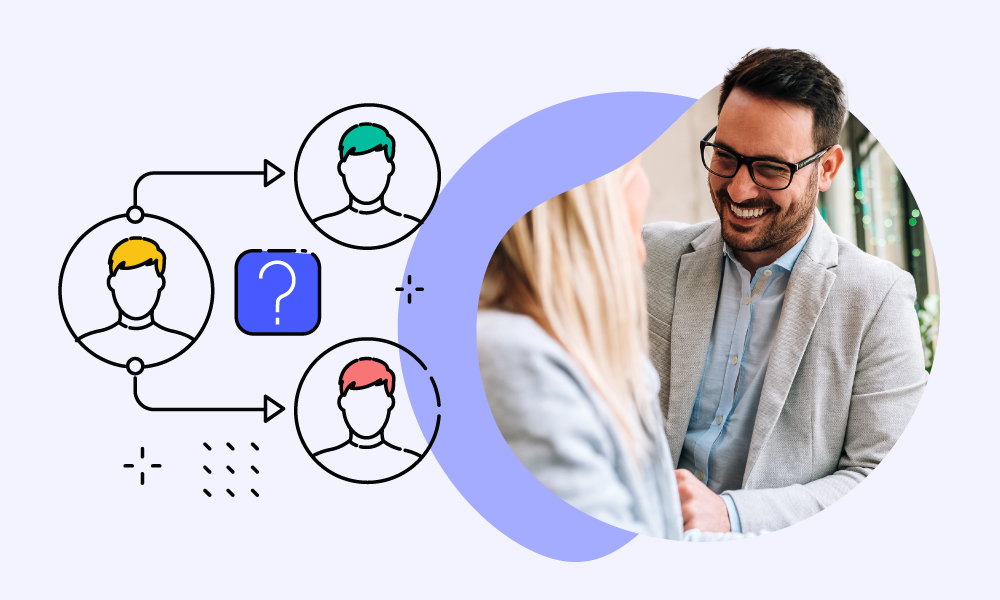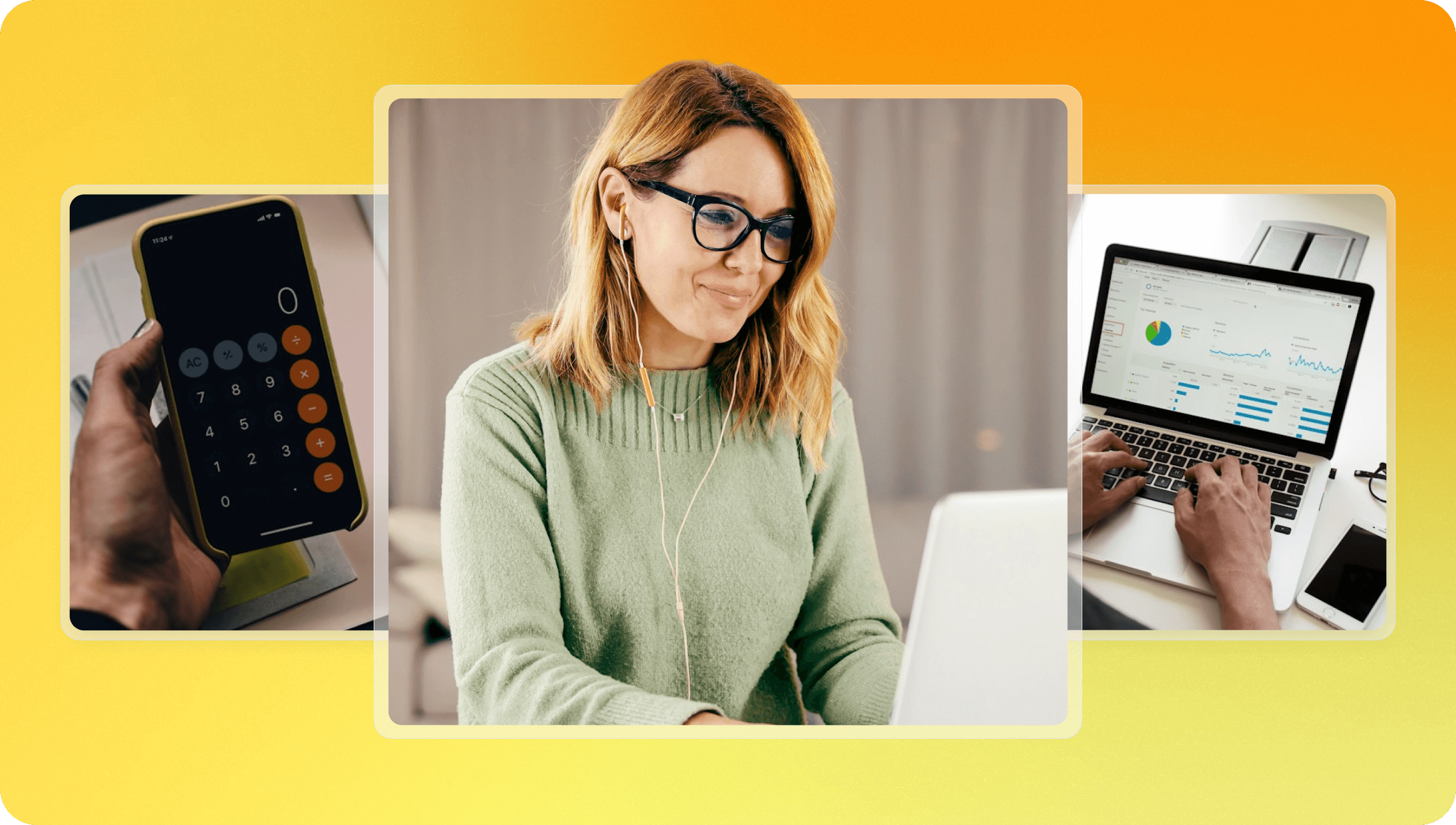
Some people will tell you that Business-to-Business and Business-to-Consumer are the same because they’re really just H2H (Human-to-Human). Believing this would be a HUGE mistake!
Sure, some elements do overlap, but there are major differences between B2B sales and B2C sales.
Without understanding them and taking them into consideration, you’d miss out on leads, opportunities, and revenue.
Let’s avoid that not-so-promising scenario!
We’ll look at the key similarities and differences between the B2B and B2C sales process, getting clear on how to optimise each.
Key differences between B2B sales vs B2C sales

How is B2B sales different from B2C, then? In five main ways!
Target audience and their reason to buy
- B2B – You’re targeting businesses, which can range from self-employed professionals to small companies and huge corporations. Most of them have various teams and stakeholders. So, their buying decisions are motivated by logic, as they’re looking for products or services that solve a big problem, benefit their business, and generate a satisfactory ROI
- B2C – You’re targeting individual consumers purchasing something for themselves or their household. So, in most cases, their buying decision is more emotional. As well as solving a problem, they buy products or services that tap into their desires or sense of identity
Decision-making process
- B2B – Unless you’re targeting solopreneurs, this process involves multiple decision-makers with different preferences and priorities. So, it often requires formal proposals, presentations, meetings, and several touchpoints with various people
- B2C – It’s usually one person making that decision, often on an impulse and without needing to convince anyone else (other than, in some cases, their partner)
Sales cycle length
- B2B – Due to those multiple stakeholders, different priorities, and the strong focus on ROI, B2B sales cycles are longer and more complex, lasting +100 days on average
- B2C – Since you’re selling to one person who’s often buying from an emotional place, you can get away with much shorter sales cycles. In some cases, it can literally be a single interaction, like showing a paid ad to an impulse buyer
Pricing and lifetime value
- B2B – B2B can have set fees, but it usually involves different plans or packages (for example, for SaaS options with more or fewer features), custom quotes (like for bespoke projects or Enterprise plans), and even discounts (especially for bulk orders). Either way, since acquiring B2B customers is more complex and expensive, it only makes sense to focus on long-term relationships, maximising their lifetime value
- B2C – While there can be exceptions, most of these products and services are built around standard prices. It’s always smart to retain new customers and encourage repeat purchases, but in most cases, B2C relies on single-time transactions (like a consumer buying a new dress or a holiday package)
Marketing and sales tactics
- B2B – You should place a higher focus on educational and value-driven marketing, like insightful blog posts. You’ll need some sales-enablement content too (such as case studies or videos debunking your target audience’s objections) to make your products or services feel like a no-brainer. It’s also important to build trust and prioritise long-term relationships
- B2C – You’ll want to lead with emotional appeal and create a connection with your audience (for example, with relatable marketing or by tapping into their desires). Depending on your positioning and pricing, it could also be beneficial to highlight the convenience of your solution and offer targeted promotions
Overlapping elements between B2B sales and B2C sales

As teased before, B2B and B2C sales do have a few things in common, too:
- They can involve products or services
- They often use the same digital marketing strategies, like SEO, social media, email marketing, and lead magnets (like a ScoreApp quiz to capture your audience’s details and segment them strategically)
- Strong customer service is always important
- You can use loyalty programmes and referral incentives to turn customers into fans and ambassadors
Despite these similarities, though, you can’t afford to ignore their differences.
So, let’s see what the B2B and B2C sales process can look like in practice.
What’s the typical B2B sales process?

The typical B2B sales process is about selling products or services from one business to another.
This involves longer and more complex cycles with various touchpoints and decision-makers, especially to show them how this investment will benefit their business and bring a positive ROI.
B2B sales examples
- SaaS platforms offering bespoke solutions to Enterprise clients
- Wholesale suppliers selling to retailers
- Sales coaches offering 1:1 services to self-employed business owners
Enhancing your B2B sales process with ScoreApp
When you create a full B2B quiz funnel with ScoreApp, you get to simplify, shorten, and optimise your entire sales cycle. You will:
- Stand out in a saturated and traditionally boring industry thanks to your valuable quiz lead magnet (for example, “What’s your team’s untapped potential?” or “FREE SEO Scorecard”)
- Ask strategic questions to understand each lead (for example, what are their biggest challenges, goals, likes, and dislikes? What’s their role within that company?)
- Pre-qualify them and segment them automatically based on their answers
- Nurture your leads with email sequences that build trust and prime them for a sale
- Personalise your emails, messages, and touchpoints to make them more valuable and effective
- Send the most relevant sales-enablement content to each lead (like the case study of how you helped a company in their same sector)
- Recommend the best option for each of them (for example, a specific SaaS product), or invite them on a call with a tailored message (referencing their unique situation and quiz answers and offering them to discuss their challenges together)
- Share your leads’ data with your sales team, allowing them to tailor their approach right from the beginning
- Close more sales, and boost your revenue
Optimise your B2B sales process with a ScoreApp quiz funnel
What’s the typical B2C sales process?

The typical B2C sales process involves selling products or services directly to consumers, especially by harnessing emotional and impulse-driven buying decisions.
So, it usually comes with shorter sales cycles and, in many cases, lower-value purchases than B2B.
B2C sales examples:
- Online retailers like Amazon
- Brands with physical stores, like your high-street shops
- An interior designer offering their services to individuals and couples
Enhancing your B2C sales process with ScoreApp
A B2C quiz funnel will help you maximise the sale of your products or services because you’ll get to:
- Reach more target customers through a valuable quiz lead magnet (like “What’s your traveller profile?” for a travel agency, or “Build your skincare routine” for a skincare brand), standing out against generic promotions and sales
- Ask them both engaging and strategic questions, using the latter to segment them into groups (for example, based on their preferences or profile)
- Nurture each segment with personalised email sequences, building trust, a connection, and hype
- When the time is right, recommend the best products or services for them, sending them a tailored message with an unmissable call to action
- Stay in touch, and turn more of them into repeat customers (for example, by upselling and cross-selling new products in a personalised way based on their behaviours and quiz results) and loyal fans (through loyalty programmes)
Optimise your B2C sales process with a ScoreApp quiz funnel
Boost your B2B or B2C sales with a full ScoreApp quiz funnel

There are big differences between B2B sales and B2C sales.
On top of the overlapping elements we covered earlier, though, they have one thing in common: ScoreApp can supercharge both!
So, build a full quiz funnel to reach more target customers, nurture them in a personalised way, and promote the best product or service for them.
Start by creating your quiz lead magnet today and for FREE with ScoreApp.




